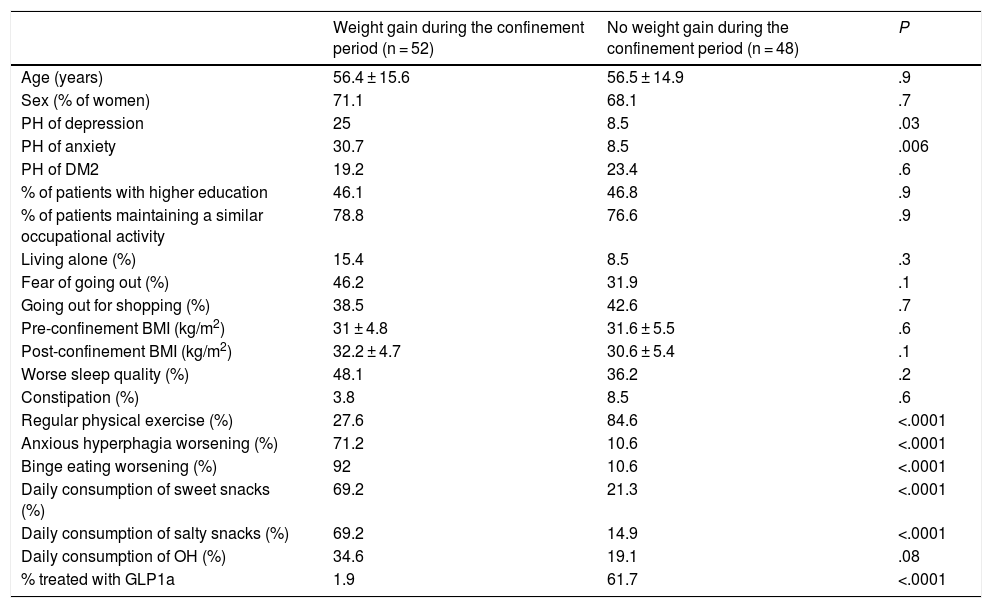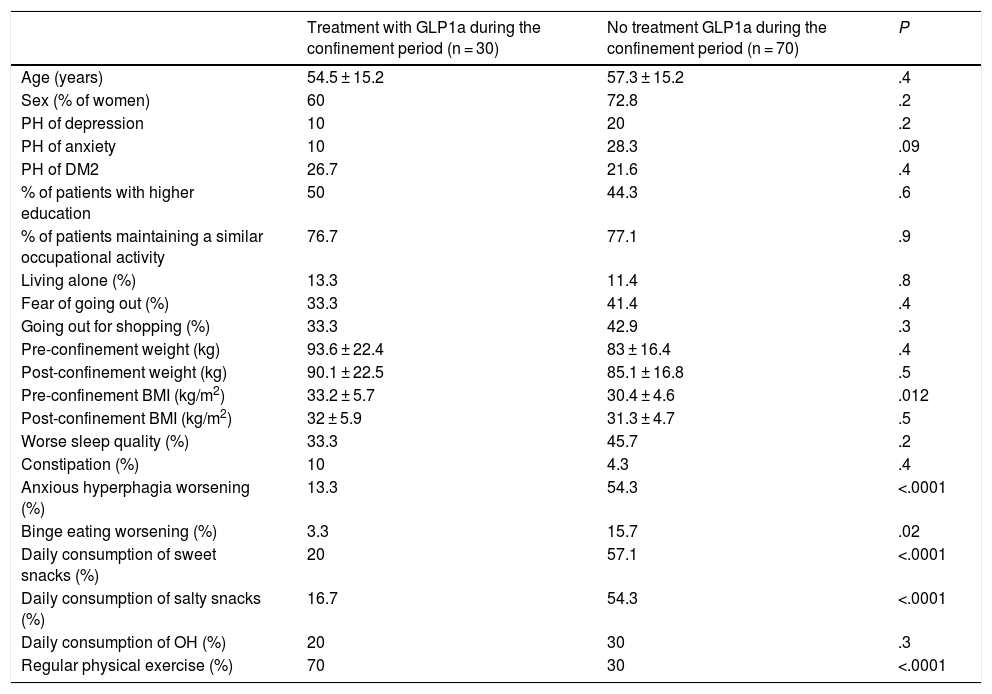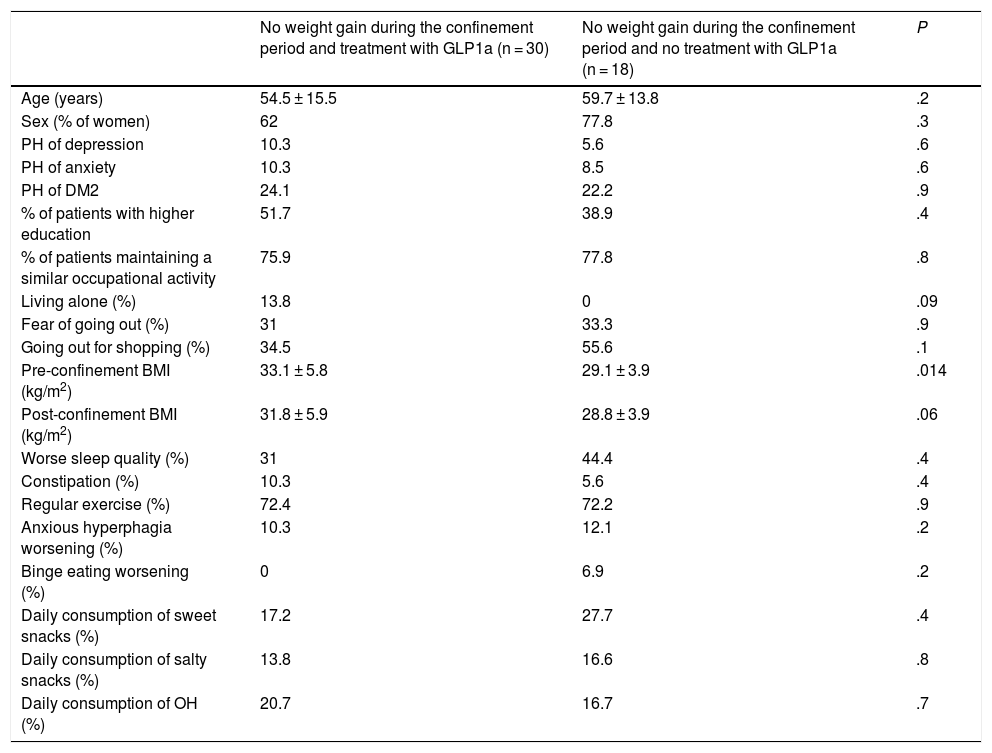One of the potential negative effects of a lockdown are changes in dietary and lifestyle patterns, which can lead to weight gain. Our objective was to assess the changes on dietary habits and eating patterns in a lockdown situation and their impact on weight. We aimed to determine whether the treatment with GLP1 analogues (aGLP1) could impact on these parameters.
Material and methods100 overweight/obese patients were consecutively recruited for a review at the end of the lockdown. A structured interview was designed to see changes in dietary habits, routines and exercise.
Results52% patients gained weight during lockdown. The percentage of subjects with an active history of depression or anxiety was higher among the group of patients who gained weight. The percentage of patients who worsened their hyperphagia was higher in those who gained weight (71.2% vs 10.6%; P < .0001); similar results were observed with binge eating (92% vs 10.6%; P < .0001) and cravings, both sweet and salty (69.2% vs 21.3% and 69.2% vs 14.9%; P < .0001 and P < .0001 respectively). Of the 48 patients who did not gain weight, 30 were under aGLP1 treatment (61.7%). The worsening of abnormal eating patterns was lower among patients treated with aGLP-1.
ConclusionsA lockdown is a vulnerable period to gain weight, especially in those patients with a psychopathological history. aGLP1 manage to control emotional eating, making them a valuable therapeutic option.
Uno de los potenciales efectos negativos de un confinamiento son los cambios en los patrones dietéticos y de estilo de vida, que pueden conllevar a una ganancia de peso. El objetivo fue ver los cambios sobre los hábitos higiénico-dietéticos y de patrones de ingesta en una situación de confinamiento y el impacto sobre el peso. Asimismo, ver si el estar bajo tratamiento con análogos de GLP1 (aGLP1) modificó estos parámetros.
Material y métodosSe reclutaron de forma consecutiva 100 pacientes con sobrepeso/obesidad que acudieron a revisión al finalizar el confinamiento. Se diseñó una entrevista estructurada para ver los cambios en los hábitos dietéticos, rutinas y ejercicio.
ResultadosEl 52% pacientes ganaron peso durante el confinamiento. El porcentaje de sujetos con historia activa de depresión o ansiedad fue superior entre el grupo de pacientes que ganó peso. El porcentaje de pacientes que empeoraron su hiperfagia ansiosa fue superior en aquellos que ganaron peso (71,2% vs 10,6%; P < ,0001); lo mismo ocurrió con los atracones (92% vs 10,6%; P < ,0001) y los cravings, dulces y salados (69,2% vs 21,3% y 69,2% vs 14,9%; P < ,0001 y P < ,0001 respectivamente). De los 48 pacientes que no ganaron peso, 30 estaban bajo tratamiento con aGLP1 (61,7%). El empeoramiento de los patrones anómalos de ingesta fue inferior entre los pacientes bajo tratamiento con aGLP-1.
ConclusionesUn confinamiento es un período vulnerable para ganar peso, especialmente en aquellos pacientes con antecedentes psicopatológicos. Los aGLP1 consiguen controlar la ingesta emocional convirtiéndolos en una opción terapéutica valiosa.
Artículo
Comprando el artículo el PDF del mismo podrá ser descargado
Precio 19,34 €
Comprar ahora










